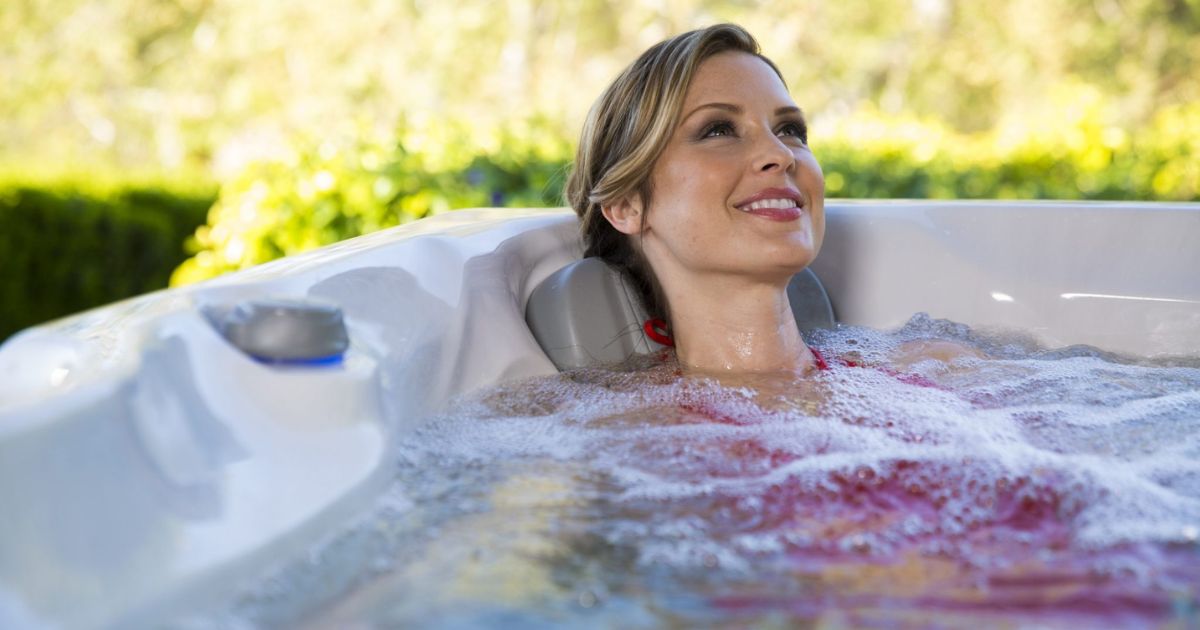After a lengthy and challenging day, immersing yourself in a hot tub could be the remedy you seek to decompress and break free from stress. Beyond its relaxation benefits, it appears that indulging in a hot tub session may offer additional advantages.
Whether you possess a hot tub or frequent your gym’s Jacuzzi, there are crucial insights to maximize your hot tub encounter. Let’s delve into the potential health perks of soaking in a hot tub and identify instances when it might be advisable to abstain.
What are the health benefits of using a hot tub?
The potential advantages of hot tub usage differ from individual to individual, contingent upon one’s overall health and the manner in which it is utilized.
Here are 13 potential benefits of immersing oneself in a hot tub.
1.Stress Relief

Soaking in a hot tub allows our muscles to relax and our mind to unwind. The warm water helps relieve tension in our body, helping reduce stress and promote relaxation. Many find just 20 minutes in a hot tub can leave them feeling rejuvenated.
2.Muscle Relaxation
The hot water causes our blood vessels to expand, increasing blood flow and circulation. This additional flow carries more oxygen and nutrients to our tired and overworked muscles. Within the warm water, painful muscle knots and tension melt away. We exit feeling loose and limber.
3.Manages muscle aches
Taking a brief soak in the tub could be the solution to alleviate muscle pain. The warmth of the hot tub provides relief to sore and fatigued muscles for the following reasons:
1. Heat promotes increased blood circulation, aiding in the relaxation of tense muscles.
2. The buoyancy of water reduces pressure on joints, offering a sense of weightlessness.
3. Immersing your body in water may assist in preventing exercise-induced muscle damage.
4.Improved Sleep
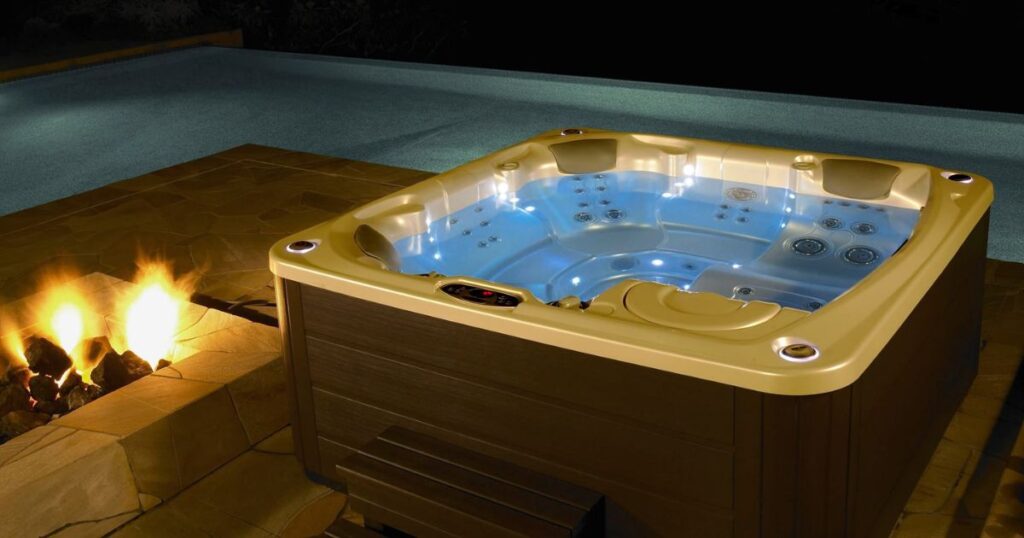
Soaking in a hot tub before bed provides powerful benefits for sleep. The warmth induces relaxation on a physical and mental level. As our body relaxes and unwinds, our mind follows suit. Many notice an improvement in sleep quality and find it easier to fall asleep after a session in the hot tub. The better rest leaves us feeling recharged for the next day.
5.Pain Relief
Soaking in warm water helps relieve soreness and pain in muscles and joints. The warmth allows tight muscles to relax and reduce inflammation. many find just 20 minutes in soothing heated water can significantly decrease muscle and joint discomfort.
6.Better Cardiovascular Health
The warmth of a hot tub causes blood vessels to dilate, lowering blood pressure and heart rate. This effect is similar to light exercise and helps strengthen the cardiovascular system over time. Regular sessions are linked to reducing risks for heart disease and stroke.
7.Improved Insulin Sensitivity
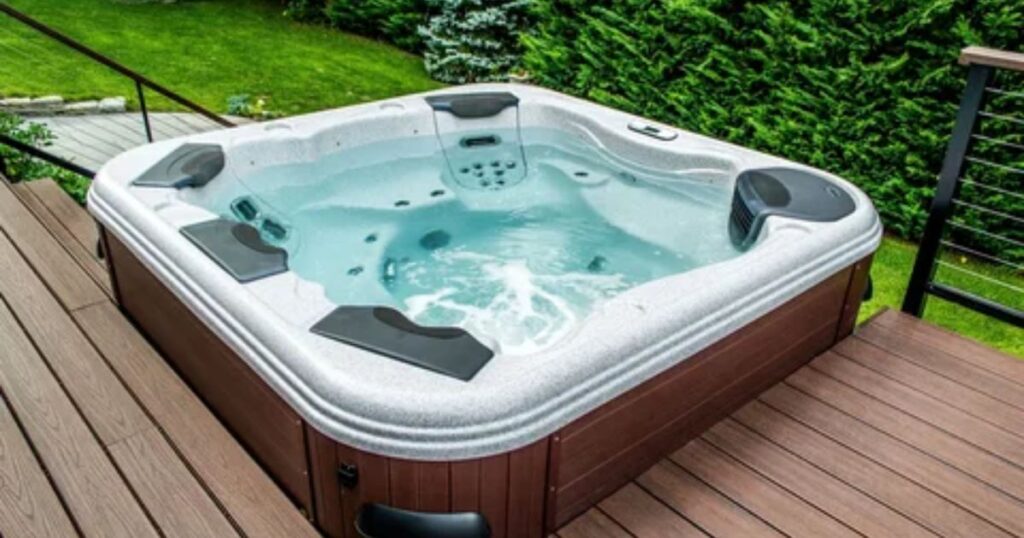
Heat stimulates blood flow which helps shuttle glucose and other sugars away from the bloodstream more effectively. Some studies link regular hot tub use to better regulation of blood sugar levels. The warmth may also aid weight control and reduce risks for diabetes.
8.Calorie Burn
While a hot tub session won’t burn as many calories as rigorous exercise, just 20 minutes can shed over 80 calories for the average person. The body works to maintain its temperature in the heated water, expending extra energy in the process.
Soaking in a hot tub provides relief from pain and stress. It also offers benefits like lowering blood pressure, burning calories, and regulating blood sugar.
9.Better Circulation
Soaking in hot water helps improve circulation. The heat causes blood vessels to dilate which increases blood flow throughout the body. This helps deliver more oxygen and nutrients to tissues and organs. It also helps the cardiovascular system work more efficiently. Improved circulation can aid recovery from exercise and reduce blood pressure over time.
10.Weight Loss
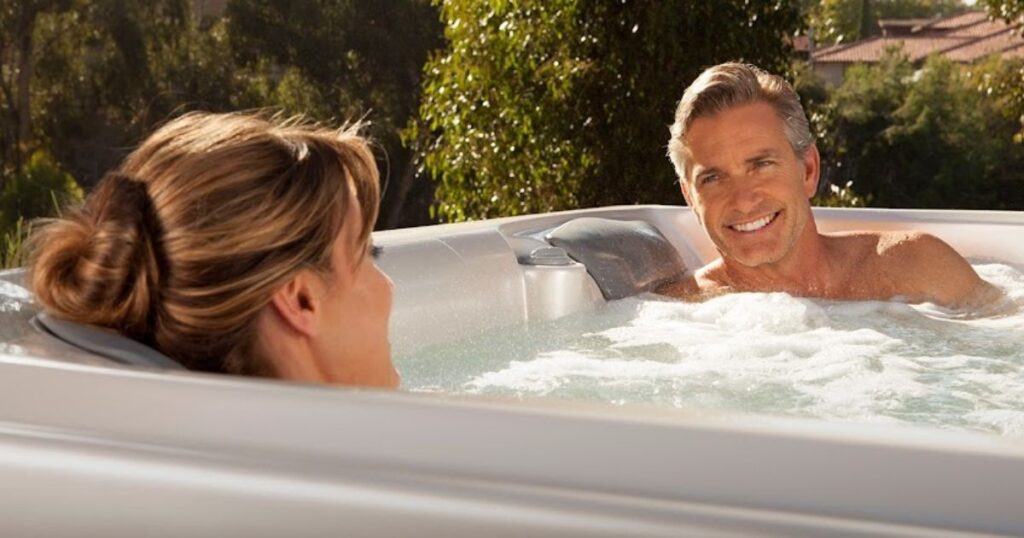
While it might appear unconventional that weight loss can be achieved through spending time in a hot tub, it’s a verifiable fact! The hot tub’s warmth elevates your body temperature, prompting an increased heart rate for a duration. This temperature fluctuation compels your body to exert more effort in returning to its normal resting state, leading to calorie burning.
Furthermore, as the jets massage your muscles, they activate your lymphatic system, responsible for fluid movement and toxin elimination in your body. The lymphatic system is only stimulated through movement, making hot tub usage an ideal option for those with a more sedentary lifestyle, providing significant support to their internal systems.
11.Lower Blood Pressure
Sessions in the warm water of a hot tub have benefits for lowering high blood pressure. The heat causes blood vessels to widen which decreases resistance and workload on the heart.
This drop in blood pressure provides significant health advantages by reducing risks for heart attacks, strokes, and other cardiovascular issues. Even mild decreases in blood pressure provide important returns on long-term health and well-being.
12.Relief from headaches
Suffer from regular headaches?
Immersing yourself in a hot tub widens your blood vessels, promoting improved blood circulation and aiding in the alleviation of the head pressure contributing to your pain.
Devoting a moment to unwind, shutting your eyes, and taking a break – while also stepping away from screens – can further contribute to relieving any headaches you may be experiencing.
13.Manage diabetes and heart disease

In 2008, a study found that the impact of hot tubs on insulin sensitivity and blood pressure is akin to that of exercise training. Subsequent research suggested that consistent use of hot tubs is a cost-effective and promising approach for addressing obesity and diabetes.
While indulging in a hot tub soak should not substitute for proper diet, exercise, or medication in the management of type-2 diabetes or heart disease, it undeniably serves as an effective tool for controlling heart rate and blood sugar levels.
Who should avoid hot tubs?
If you harbor any reservations about utilizing a hot tub, engaging in a discussion with your doctor is advisable. This is particularly crucial under the following circumstances:
Heart disease: Immerging in a hot tub has the potential to impact heart rate and blood pressure. While this might be advantageous for individuals with cardiovascular concerns, it could pose risks for others.
Pregnancy: The risk of overheating during pregnancy is a concern, and it can be detrimental to both the mother and the baby.
Furthermore, consider avoiding the hot tub if you have:
Skin injuries: Refrain from hot tub use until cuts, open sores, or rashes have fully healed to minimise the risk of irritation and infection.
Low blood pressure: If you are prone to lightheadedness or fainting, it is advisable to steer clear of the hot tub, as the elevated temperature may further lower your blood pressure.
Urinary tract infection (UTI): Exposure to hot water during a UTI may exacerbate symptoms, making it prudent to avoid hot tub use in such cases.
How to benefit from your hot tub session
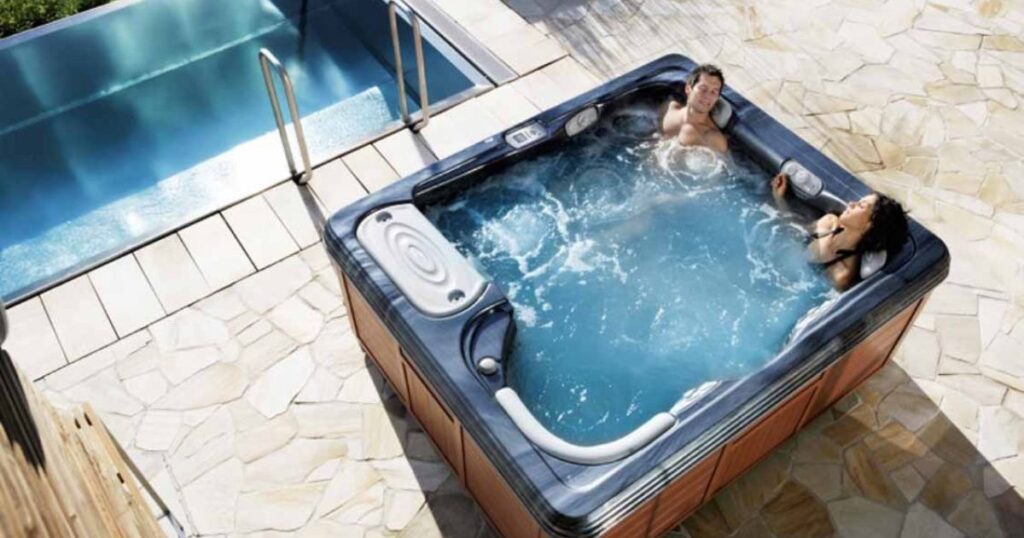
Whether utilizing a personal hot tub or one located in a gym or community setting, it is crucial to ensure that the tub is clean and adequately maintained. Regular cleaning and testing of the water are essential. Neglecting the maintenance of a hot tub may result in a skin infection known as hot tub folliculitis.
Contrary to portrayals in movies, television, and social media, prolonged hours in a hot tub with a cocktail in hand are neither ideal nor safe. To maximise benefits and minimise risks, adhere to the following guidelines during your hot tub soak:
Moderate water temperature: Avoid excessively hot water, ensuring it does not exceed a maximum of 104°F (40°C).
Stay hydrated: Hot tubs induce sweating, leading to dehydration. Consume ample water but refrain from alcohol before or during your soak.
Limit soak time: Especially if unaccustomed to hot tub use, avoid prolonged sessions. At the highest temperature, set a limit of 10 to 15 minutes. Extended periods are acceptable at lower temperatures. Immediate exit indicators include:
- Lightheadedness
- Dizziness
- Nausea
- Skin redness
- Shortness of breath
Post-soak hygiene: After your session, remove your bathing suit and cleanse with soap and lukewarm water. Avoid transitioning abruptly from the hot tub to icy cold water, as this could lead to a sudden spike in blood pressure.
FAQs
Is it good to go in a hot tub everyday?
It depends on individual health conditions, but regularly using a hot tub can have both benefits and risks.
How long should you sit in a hot tub?
The duration for sitting in a hot tub varies, but generally, 15-30 minutes is recommended.
What does a hot tub do for your body?
A hot tub promotes improved blood circulation, relaxation, and helps alleviate muscle tension.
Conclusion
Soaking in a hot tub provides various health benefits beyond just relaxation. Regular use has been associated with improved sleep, reduced stress levels, pain relief, better circulation and cardiovascular health. It may also aid in managing diabetes and heart disease when used as part of an overall healthy lifestyle.
Safety precautions must be followed to prevent overheating when using a hot tub. Monitoring hot tub water temperature, limiting session times and staying hydrated helps ensure a safe and enjoyable experience. When utilised correctly and moderately as part of a healthy routine, a hot tub offers a convenient self-care option.
Its relaxing effects on both the body and mind can leave one feeling rejuvenated and able to better handle daily stresses. While not a replacement for proper exercise, maintaining a toned circulatory system and managing chronic conditions, regular hot tub sessions may provide supplemental support to overall well-being and quality of life.
